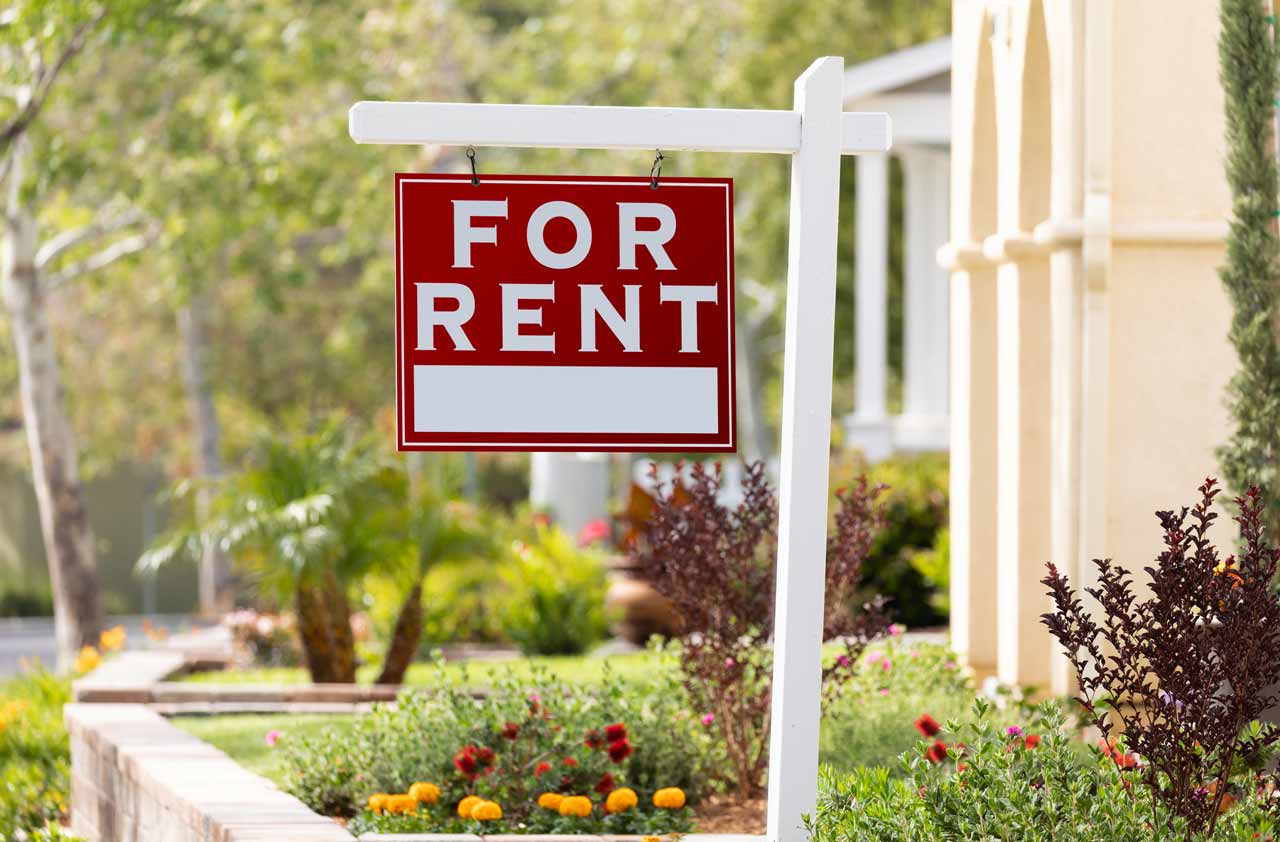9 Tips to Successfully Rent Out Your Home
If selling your home would mean giving up a low mortgage rate, consider renting it out instead.


Profit and prosper with the best of Kiplinger's advice on investing, taxes, retirement, personal finance and much more. Delivered daily. Enter your email in the box and click Sign Me Up.
You are now subscribed
Your newsletter sign-up was successful
Want to add more newsletters?

Delivered daily
Kiplinger Today
Profit and prosper with the best of Kiplinger's advice on investing, taxes, retirement, personal finance and much more delivered daily. Smart money moves start here.

Sent five days a week
Kiplinger A Step Ahead
Get practical help to make better financial decisions in your everyday life, from spending to savings on top deals.

Delivered daily
Kiplinger Closing Bell
Get today's biggest financial and investing headlines delivered to your inbox every day the U.S. stock market is open.

Sent twice a week
Kiplinger Adviser Intel
Financial pros across the country share best practices and fresh tactics to preserve and grow your wealth.

Delivered weekly
Kiplinger Tax Tips
Trim your federal and state tax bills with practical tax-planning and tax-cutting strategies.

Sent twice a week
Kiplinger Retirement Tips
Your twice-a-week guide to planning and enjoying a financially secure and richly rewarding retirement

Sent bimonthly.
Kiplinger Adviser Angle
Insights for advisers, wealth managers and other financial professionals.

Sent twice a week
Kiplinger Investing Weekly
Your twice-a-week roundup of promising stocks, funds, companies and industries you should consider, ones you should avoid, and why.

Sent weekly for six weeks
Kiplinger Invest for Retirement
Your step-by-step six-part series on how to invest for retirement, from devising a successful strategy to exactly which investments to choose.
During the pandemic, many home buyers — as well as homeowners who refinanced their loans — attained exceptionally low mortgage rates. As of the third quarter of 2023, an estimated 60% of homeowners reported that they had a mortgage rate below 4%, and more than 20% had a rate under 3%, according to a Redfin analysis of data from the Federal Housing Finance Agency.
If you’re a homeowner with a rock-bottom mortgage rate and you’re looking to move, now could be a good time to purchase a new home and turn your current home into a rental property. Or, if you’d rather stay put, you could take some of the equity you’ve built up in your home and buy an investment property. Although rents decreased slightly in 2023, the national median rent is still almost $250 per month higher than it was three years ago, hitting $1,379 last December, according to Apartment List.
Being a good landlord is one of the key ingredients to generating a positive cash flow from an investment property. But becoming a landlord involves navigating unfamiliar tasks, such as vetting tenants, creating lease agreements and making home repairs — and a poorly managed property can make a rental a poor investment. Here are tips for first-time landlords.
From just $107.88 $24.99 for Kiplinger Personal Finance
Become a smarter, better informed investor. Subscribe from just $107.88 $24.99, plus get up to 4 Special Issues

Sign up for Kiplinger’s Free Newsletters
Profit and prosper with the best of expert advice on investing, taxes, retirement, personal finance and more - straight to your e-mail.
Profit and prosper with the best of expert advice - straight to your e-mail.
Check your community's rules for rentals
If your property is part of a homeowners or condo association, the association likely has rules governing rentals. Some ban homeowners from renting properties altogether, while others limit the percentage of units that can be rented out.
There could also be restrictions for lease terms — some require a minimum one- year lease agreement — as well as tenant registration requirements, deposits and move-in fees. Take a close look at your association’s covenants, conditions and restrictions (CC&Rs), which will spell out the rules governing rentals in your community.
Review your local landlord-tenant laws
State law often governs certain aspects of the landlord-tenant relationship, from how much a landlord can charge for rent and security deposits to a landlord’s access to the property and the eviction process. Nolo offers guides to landlord-tenant law in each state.
Says MacKenzie Wilson, a landlord since 2016 and host of the rental industry podcast For Rent: “Read the legislation that applies to you, or let your tenants teach you through expensive, and not to mention stressful, firsthand experience.”
Your city or county may have additional landlord-tenant laws, says Corina Eufinger, a real estate investor in Wisconsin. It’s also important to get familiar with Fair Housing laws with regard to federally protected classes and additional protected classes in your state, says Alexandra Alvarado, director of marketing and education at the American Apartment Owners Association, a trade group that offers landlords free resources, including a national directory of real estate attorneys and eviction specialists.
Vet tenants thoroughly

“Screening tenants is your best line of defense against any number of financial catastrophes, whether it be rent that doesn’t get paid or a renter damaging your property,” Eufinger says.
Take the time to conduct a thorough background check by pulling an applicant’s credit score, criminal history and eviction history. You can do this using a tenant screening service such as MyRental, RentPrep, RentSpree or SmartMove. Fees for these services typically run between $25 and $40 per applicant, depending on what kind of information is collected.
Many landlords charge prospective tenants an application fee to cover these costs. In addition, Alvarado recommends contacting an applicant’s previous landlord to find out how their relationship was with the tenant.
Craft an iron-clad lease agreement
There are free state-specific residential lease templates available on websites such as Avail, eForms, and Legal Templates, but a real estate lawyer can help you create a lease agreement that protects your interests and limits your liability.
“The key is for there to be no loopholes or wording that might allow for interpretation, because that could result in a court siding in favor of your tenant should something go south,” says Ben Michael, an attorney at Michael & Associates in Austin, Texas.
Get landlord property insurance
Most home insurance policies won’t cover damage or theft for rental properties, says Pat Howard, a property and casualty insurance expert at Policygenius, an insurance marketplace. Switching to a landlord property insurance policy can help you cover losses in certain events.
Make sure to get a policy with rental income protection (also known as fair rental value coverage), a type of coverage that replaces lost rent if the property is temporarily uninhabitable due to a covered event, such as a fire.
Have good help on speed dial
Unless you plan on being your own repairman, you’ll want to have a roster of reliable tradespeople you can call on to address surprise home issues, such as a leaky faucet, a malfunctioning refrigerator or a clogged garbage disposal. This list of professionals should include a general handyman, an electrician, a plumber and an HVAC technician.
Set the right rent price

What you charge for rent can have a direct impact on your property’s vacancy rate. If you set your rent price too high, you might have trouble attracting tenants. But set your asking price too low and you could sell yourself short, says Alvarado.
To determine how much a typical renter in your area is able and willing to pay for your type of property, look at local market data using a website such as Rentometer, RentCafe, RentRange or Zumper. If there’s a lot of competition in your area, pricing your rent slightly below market value can make your listing stand out.
Maximize the tax breaks
Rental property owners are typically eligible for a variety of tax write-offs, such as deductions for mortgage interest, property taxes, depreciation and repairs. The IRS website’s Real Estate Tax Center provides answers to frequently asked questions about tax deductions for rental units.
Given the complexity that can come with navigating these tax breaks, consider hiring a certified public account or other credentialed professional to help prepare your tax return.
Consider hiring a property manager
If you don’t have the time or patience to manage your rental property, you may want to hire a property manager. It’ll cost you — typically, property managers charge 8% to 10% of the monthly rent, according to RentSpree, while others charge a flat monthly fee — but they will handle the ins and outs of managing your rental, such as screening tenants, dealing with maintenance requests, collecting rent, and executing lease renewals and terminations.
Related Content
Profit and prosper with the best of Kiplinger's advice on investing, taxes, retirement, personal finance and much more. Delivered daily. Enter your email in the box and click Sign Me Up.

Daniel Bortz is the Personal Finance Editor at AARP and is based in Arlington, Va. His freelance work has been published by The New York Times, The Washington Post, Consumer Reports, Newsweek, and Money magazine, among others.
-
 The New Reality for Entertainment
The New Reality for EntertainmentThe Kiplinger Letter The entertainment industry is shifting as movie and TV companies face fierce competition, fight for attention and cope with artificial intelligence.
-
 Stocks Sink With Alphabet, Bitcoin: Stock Market Today
Stocks Sink With Alphabet, Bitcoin: Stock Market TodayA dismal round of jobs data did little to lift sentiment on Thursday.
-
 Betting on Super Bowl 2026? New IRS Tax Changes Could Cost You
Betting on Super Bowl 2026? New IRS Tax Changes Could Cost YouTaxable Income When Super Bowl LX hype fades, some fans may be surprised to learn that sports betting tax rules have shifted.
-
 Stocks Sink With Alphabet, Bitcoin: Stock Market Today
Stocks Sink With Alphabet, Bitcoin: Stock Market TodayA dismal round of jobs data did little to lift sentiment on Thursday.
-
 The 4 Estate Planning Documents Every High-Net-Worth Family Needs (Not Just a Will)
The 4 Estate Planning Documents Every High-Net-Worth Family Needs (Not Just a Will)The key to successful estate planning for HNW families isn't just drafting these four documents, but ensuring they're current and immediately accessible.
-
 Love and Legacy: What Couples Rarely Talk About (But Should)
Love and Legacy: What Couples Rarely Talk About (But Should)Couples who talk openly about finances, including estate planning, are more likely to head into retirement joyfully. How can you get the conversation going?
-
 How to Get the Fair Value for Your Shares When You Are in the Minority Vote on a Sale of Substantially All Corporate Assets
How to Get the Fair Value for Your Shares When You Are in the Minority Vote on a Sale of Substantially All Corporate AssetsWhen a sale of substantially all corporate assets is approved by majority vote, shareholders on the losing side of the vote should understand their rights.
-
 Dow Leads in Mixed Session on Amgen Earnings: Stock Market Today
Dow Leads in Mixed Session on Amgen Earnings: Stock Market TodayThe rest of Wall Street struggled as Advanced Micro Devices earnings caused a chip-stock sell-off.
-
 We're 62 With $1.4 Million. I Want to Sell Our Beach House to Retire Now, But My Wife Wants to Keep It and Work Until 70.
We're 62 With $1.4 Million. I Want to Sell Our Beach House to Retire Now, But My Wife Wants to Keep It and Work Until 70.I want to sell the $610K vacation home and retire now, but my wife envisions a beach retirement in 8 years. We asked financial advisers to weigh in.
-
 How to Add a Pet Trust to Your Estate Plan: Don't Leave Your Best Friend to Chance
How to Add a Pet Trust to Your Estate Plan: Don't Leave Your Best Friend to ChanceAdding a pet trust to your estate plan can ensure your pets are properly looked after when you're no longer able to care for them. This is how to go about it.
-
 Want to Avoid Leaving Chaos in Your Wake? Don't Leave Behind an Outdated Estate Plan
Want to Avoid Leaving Chaos in Your Wake? Don't Leave Behind an Outdated Estate PlanAn outdated or incomplete estate plan could cause confusion for those handling your affairs at a difficult time. This guide highlights what to update and when.